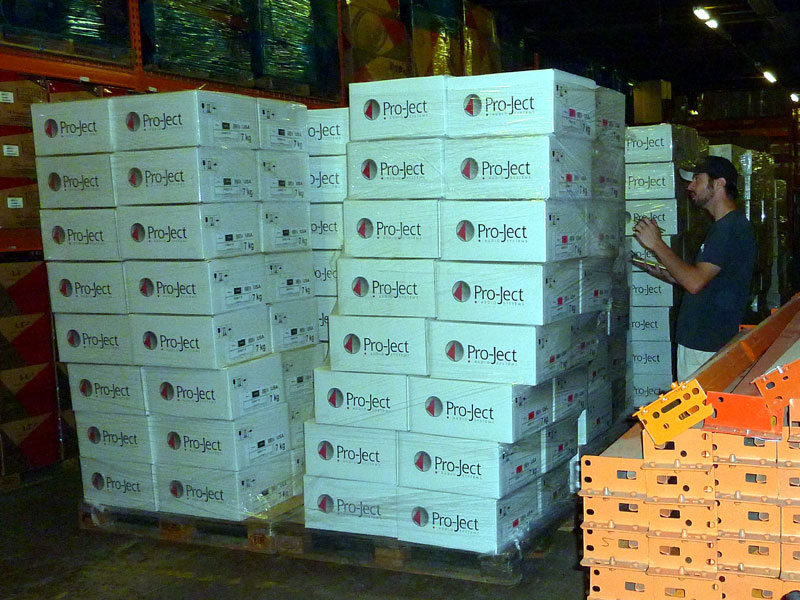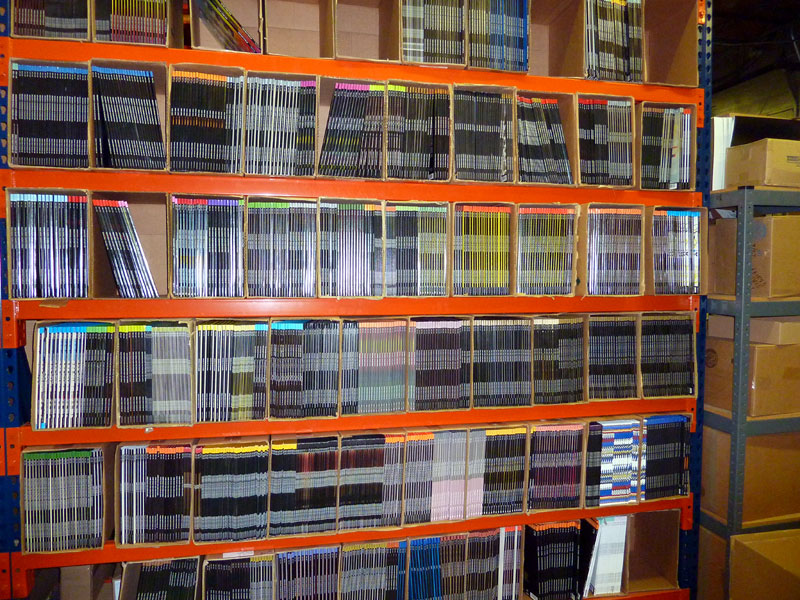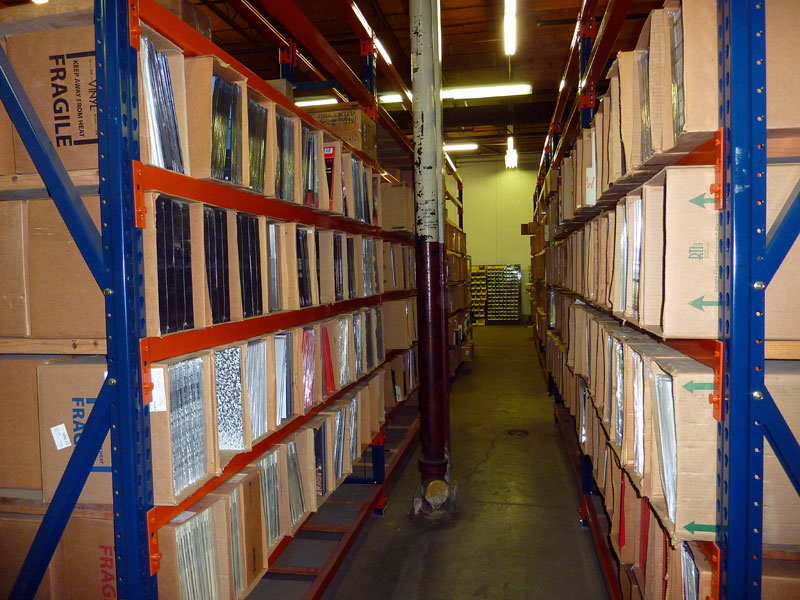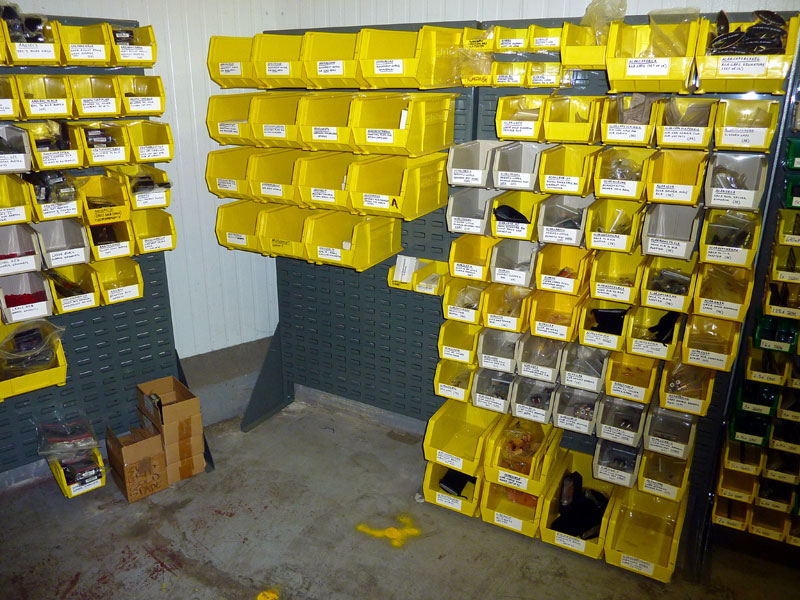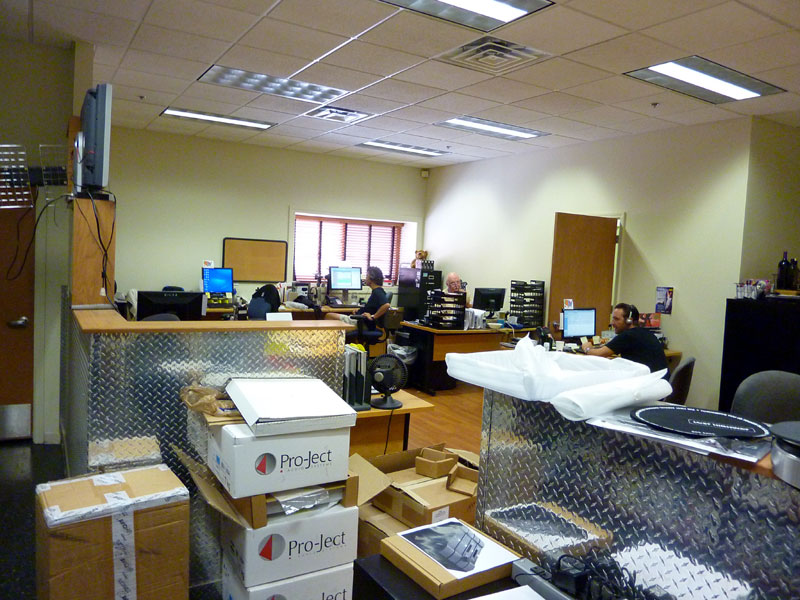Inside Music Direct
he history of any flourishing company has its milestones, those important events responsible for its success and that signal to the public that it has arrived. One of these for Music Direct, the Chicago-based seller of all things audiophile, was something for which the company wasn't directly responsible. In 2008, American Express Open produced a series of TV commercials to promote its new Plum card, and one featured Music Direct and its founder Jim Davis. To upbeat music and what appears to be one continuous shot of audio equipment and records, the commercial made the point that Plum could be a boon to any small business. What it also did was rocket Jim Davis to the top of the list of high-end audio's most recognizable people -- "that Amex dude," as one of my friends called him. With a $2000 loan from his parents, Davis founded a business that has become a cornerstone of the audio industry. Beginning strictly as a retailer, his company now does much more than sell USB DACs and record-cleaning solution. It distributes a host of product lines throughout the US and runs the Mobile Fidelity record label, both of which also represent important events in the company's two-decade history.
Another important event for Music Direct happened earlier this year. Since the beginning, the company's HQ has been in Chicago, and for more than a decade near the intersection of the Kennedy and Eisenhower expressways. At the beginning of the summer, it moved seven and a half miles north, putting it roughly halfway between downtown Chicago and Evanston and by all accounts in a much nicer neighborhood. I never visited the old location, but the new one, which I toured in late summer, is a gem whose polishing is underway. A business like Music Direct, with its massive inventory, doesn't just move into a completely finished space. It moves in and renovates, changing the space to fit it, not the other way around.
The home of a former wine distributor, the building has a few features that make it perfect for Music Direct. First, it has an enormous warehouse that provides 30,000 square feet of space for pallets of equipment and huge shelving structures for other products, including music -- mostly records. In fact, as I wandered around the warehouse, records are what I saw more than anything else. They are on shelves for easy access for the order-processing staff and stacked on pallets for future sales. I immediately wondered how long it would be until the last Mobile Fidelity record from a massive pile of boxes stacked and wrapped would sell. Two years? Five years?
Josh Bizar, Music Direct's sales and marketing director, admits that selling music, especially all of the Mobile Fidelity titles, doesn't greatly affect Music Direct's bottom line. "We don't make much money selling records," he told me. Why do it then? "It’s the main way we connect with our customers. Without the music, there would be no need for all of the audio gear, and we all love music, so it will always be a part of our product mix."
Another feature of Music Direct's new home is a holdover from its days storing wine. The warehouse is both cooled and well insulated, providing a near-constant environment for everything within and an especially good one for records, which don't like heat and humidity. I couldn't help but think that this was especially appealing as new locations were considered. It would be for me and my record collection.
After I adjusted to the massive amount of space and all of the boxes of electronics, speakers and, of course, records, I noticed storage for the many other products that Music Direct sells. There is an entire room of headphones and phono cartridges, and nearby were bins of connectors, tubes and other small parts, each a vestige of the early days, when Music Direct was one of the few sources for such audiophile essentials.
That's the back of the house, so to speak. Up front are the sales, management, marketing and IT areas, including a corner where all of the photography you see on Music Direct's website and in its catalog is produced. Even without knowing the company's business, you see ample evidence that it's hi-fi and music: records, turntables, amps and speakers were around almost every corner, much of it for staff use. Future plans include retail space with demo areas to
accommodate walk-in customers. Given Music Direct's inventory, this might be one of the
largest and best-supplied audio dealers -- for both equipment and music -- in the world.
I'll come back to see that. |


